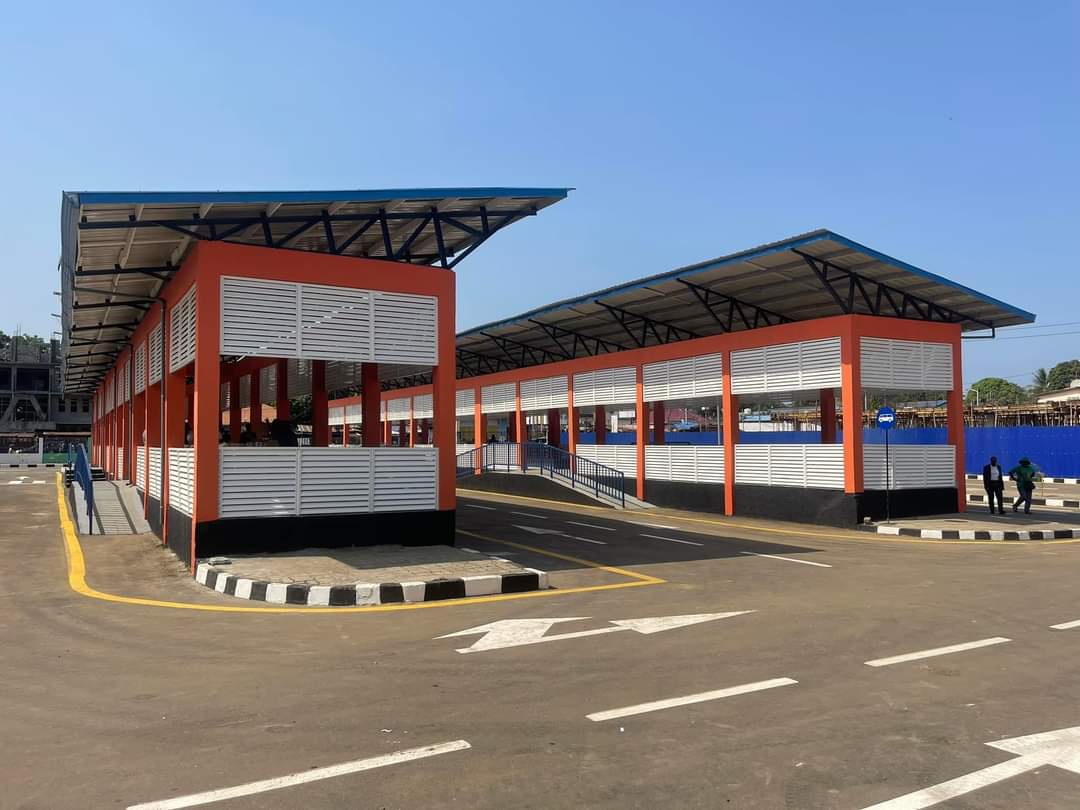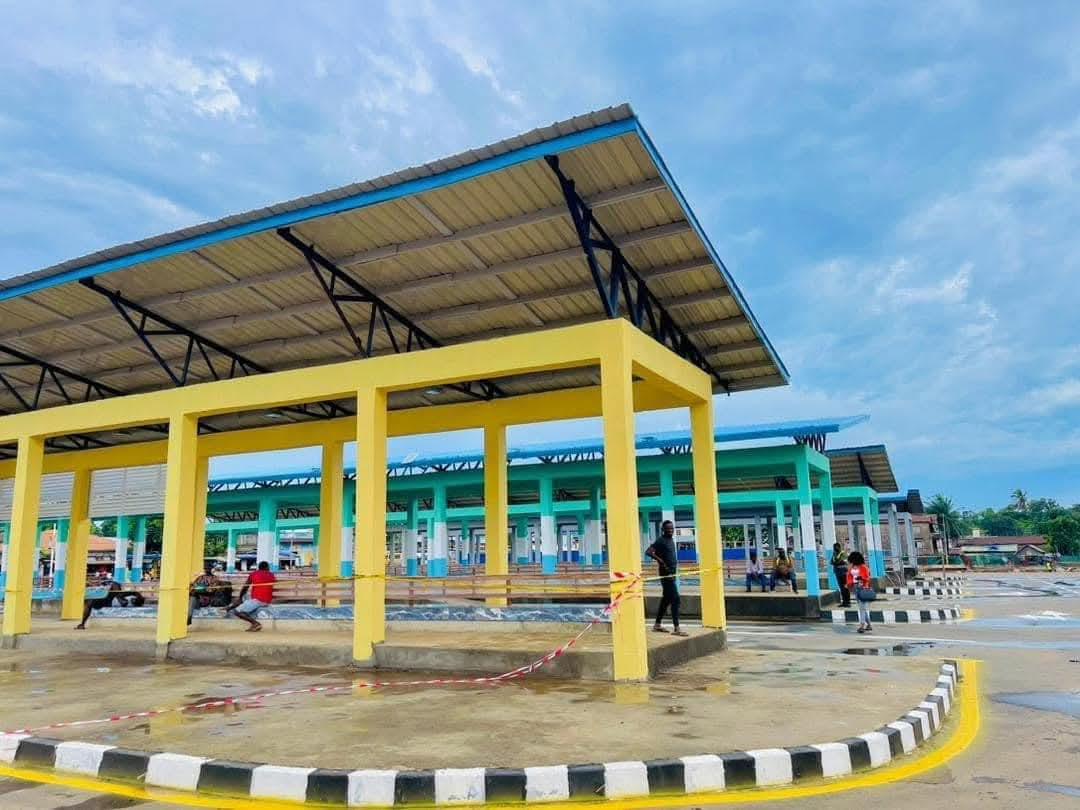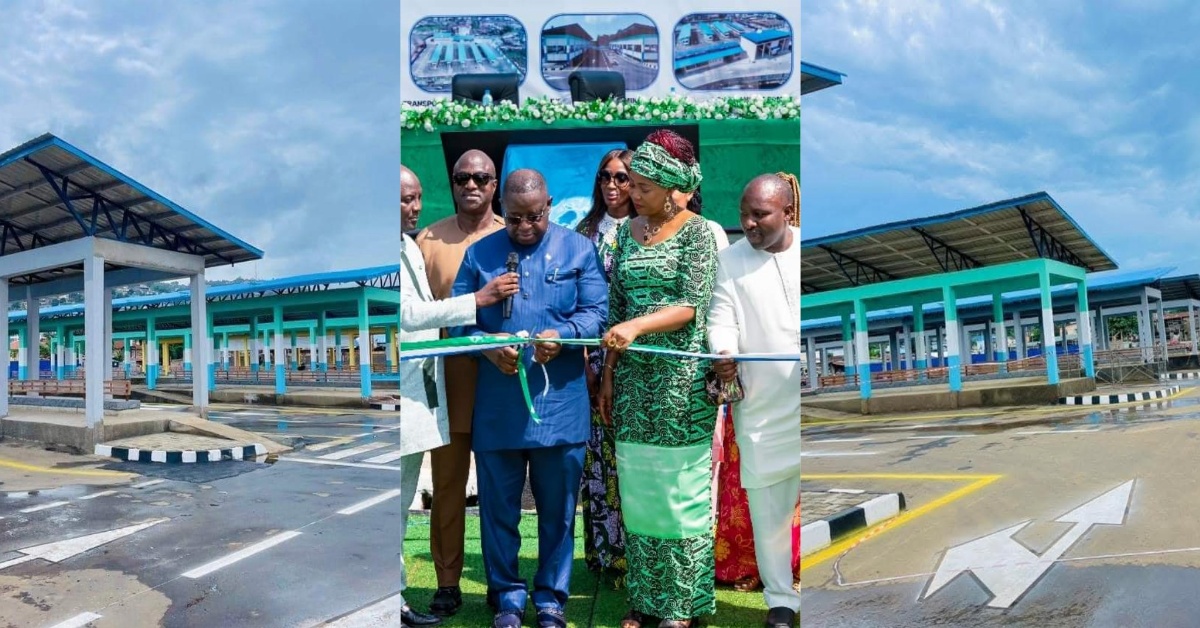President Julius Maada Bio has officially commissioned a transit transport terminal and traffic signal system as part of the USD $52 million Integrated and Resilient Urban Mobility Project (IRUMP).
This landmark initiative, funded by the Government of Sierra Leone and the World Bank, is designed to modernize urban transport, improve public safety, and enhance economic growth.
Speaking at the event, President Bio emphasized the profound impact of his government’s investments in the transportation sector, aligning with the Big Five Game Changer Agenda.
He highlighted that the terminal and associated systems represent a key milestone in fostering socioeconomic development and modernizing the nation’s infrastructure.
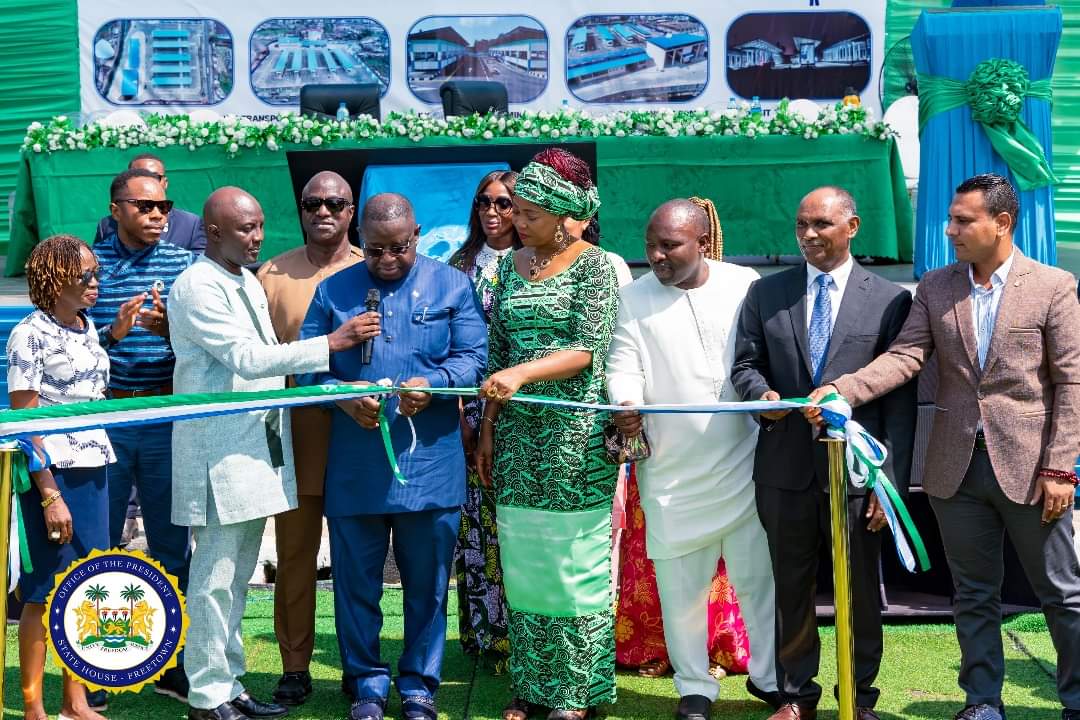
“This is a pivotal step in our commitment to economic growth and public safety. This facility will centralize public and private transportation, streamline goods and passenger movement, and reduce delays, making daily commutes and business operations more efficient” the President said.
The Integrated and Resilient Urban Mobility Project comprises three main components: modernizing public transport services under the Waka Fine initiative, establishing resilient infrastructure like the terminal and traffic signals, and building institutional capacity for effective transport management.
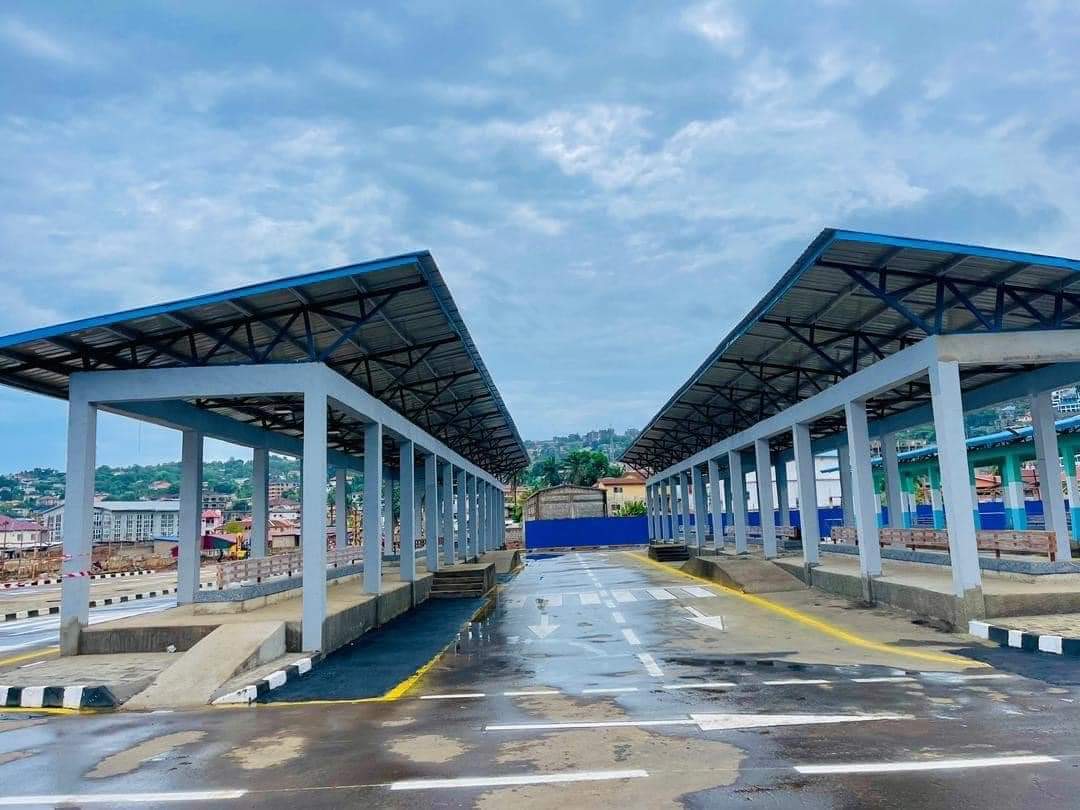
The newly commissioned terminal is designed to promote safety, sustainability, and inclusivity, particularly for persons with disabilities. The modern traffic signal system will regulate traffic flow, reduce congestion, and enhance road safety, marking a significant advancement in Sierra Leone’s urban transport solutions.
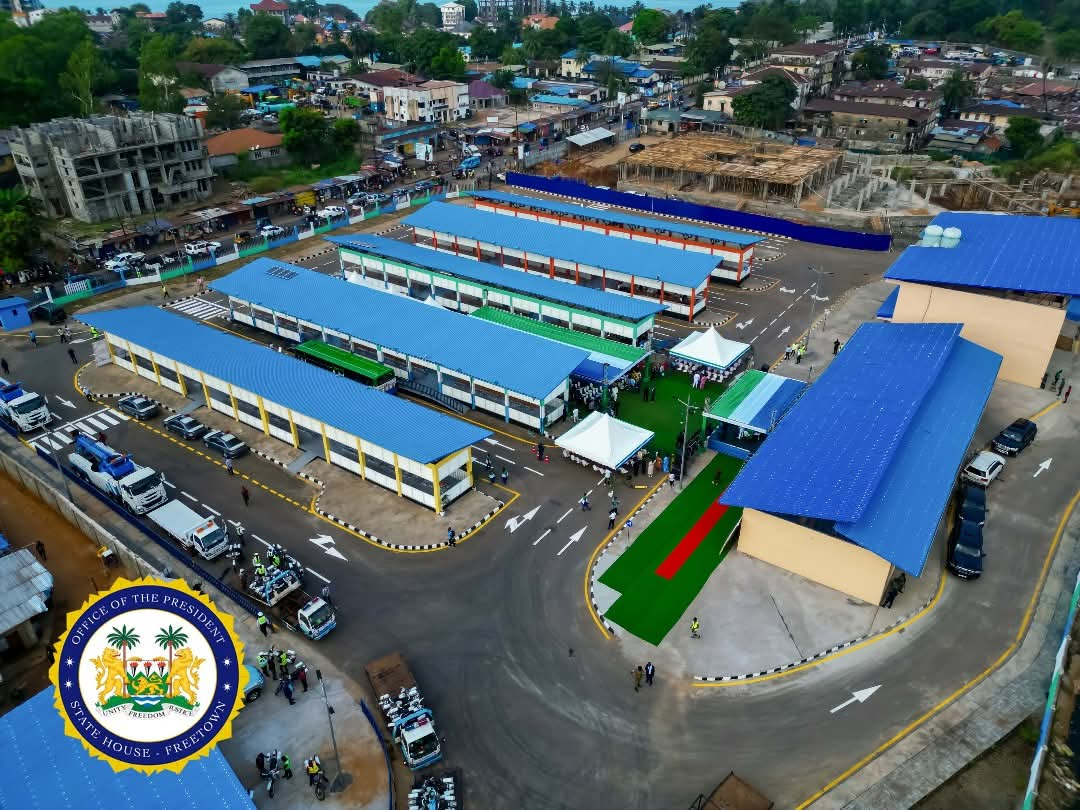
President Bio also reminded attendees of his administration’s earlier unveiling of 50 high-capacity buses to transport over 26,000 commuters daily. Together with the terminal, these initiatives will alleviate congestion on key corridors, bolster connectivity, and support Sierra Leone’s socioeconomic transformation.
World Bank Urban Transport Specialist, Adams Diehi commended President Bio’s commitment to development, noting that this milestone reflects a shared vision of prosperity and inclusivity for Sierra Leone. “This terminal will significantly reduce urban congestion and enhance the quality of life for citizens,” said Mr. Muwonge.
Private sector representative Leticia S. Senessie, from Metro Transport Company, acknowledged the government’s efforts to create an enabling environment for private enterprise while uplifting the nation’s infrastructure and socioeconomic landscape.
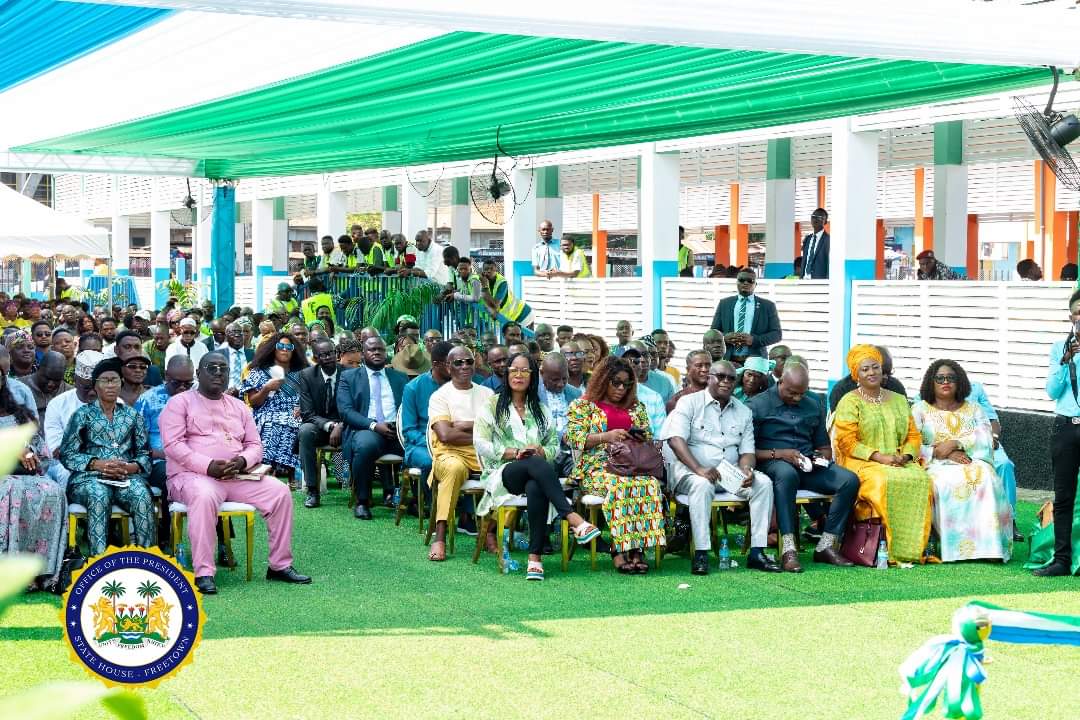
The commissioning ceremony underscores Sierra Leone’s progress in addressing urban mobility challenges, demonstrating a unified commitment from the government, international partners, and private stakeholders to drive sustainable development.
